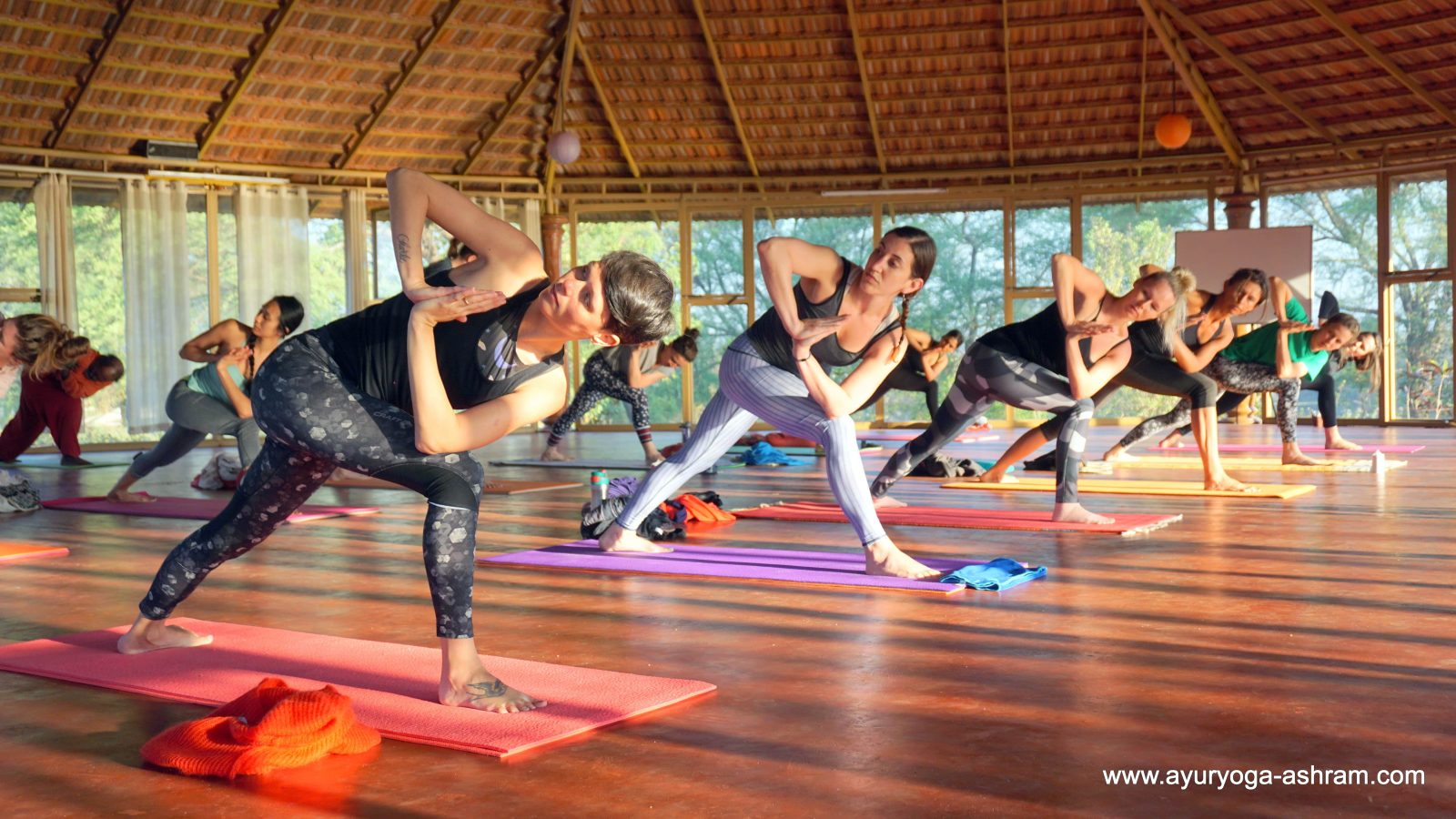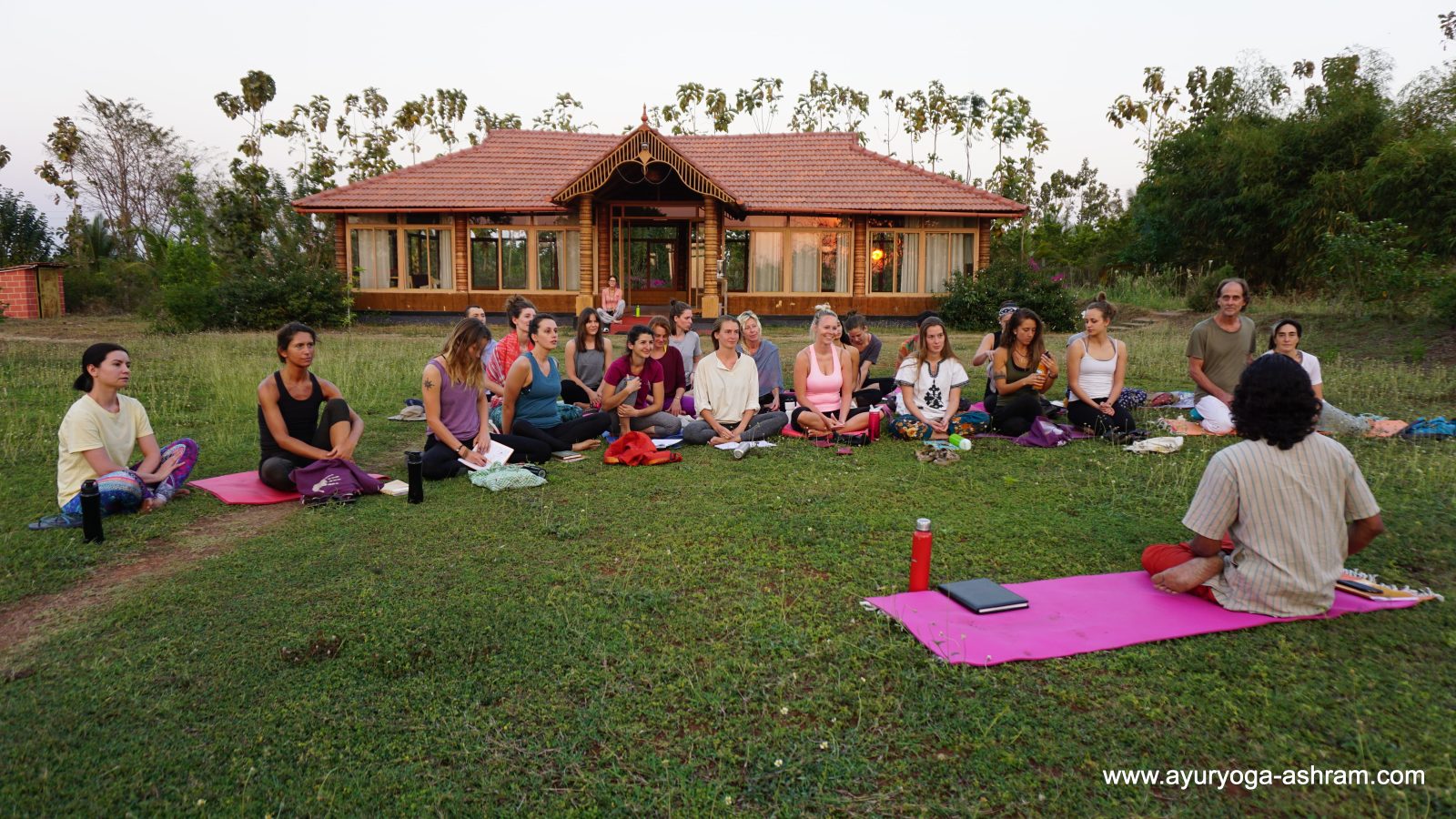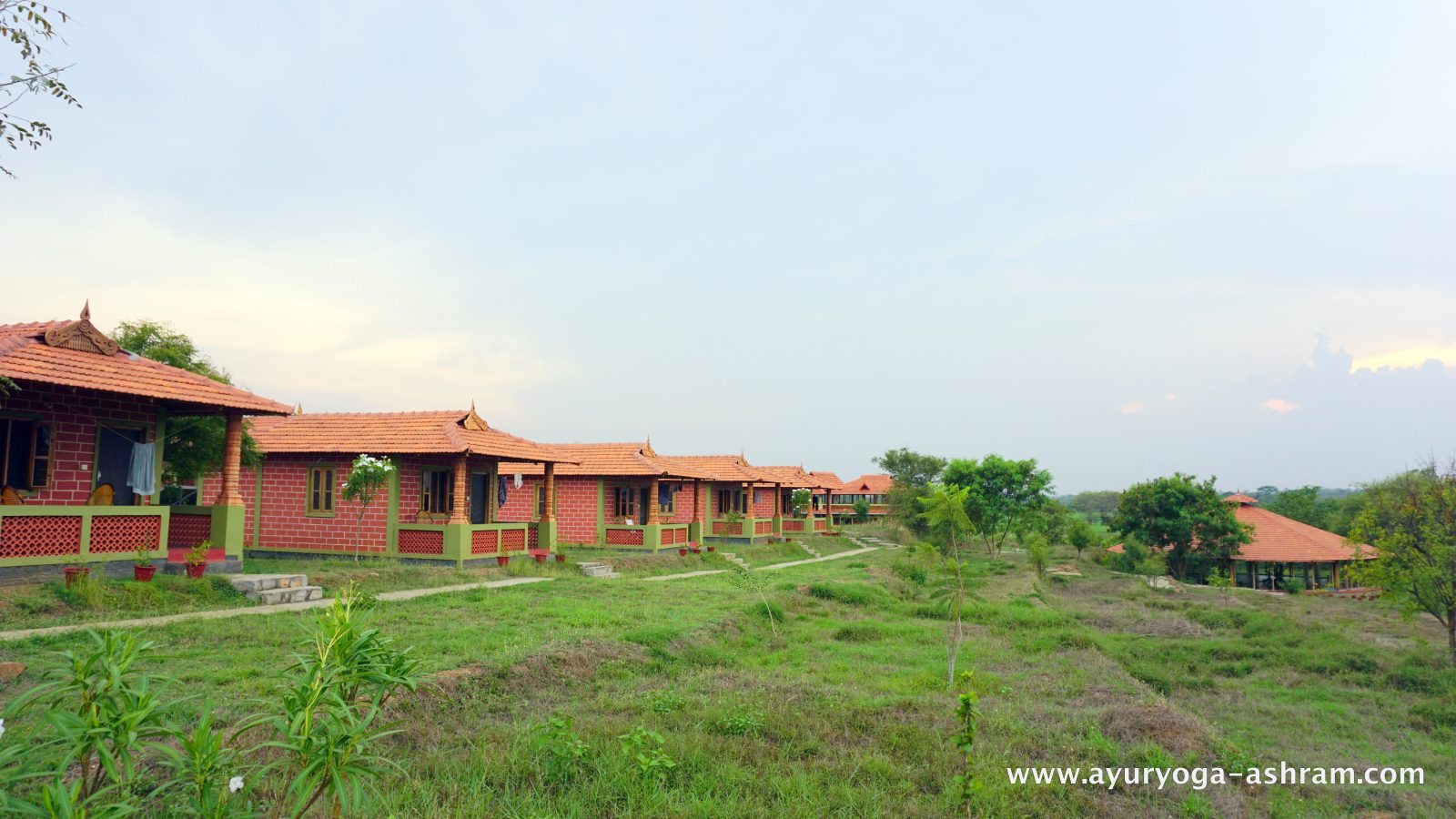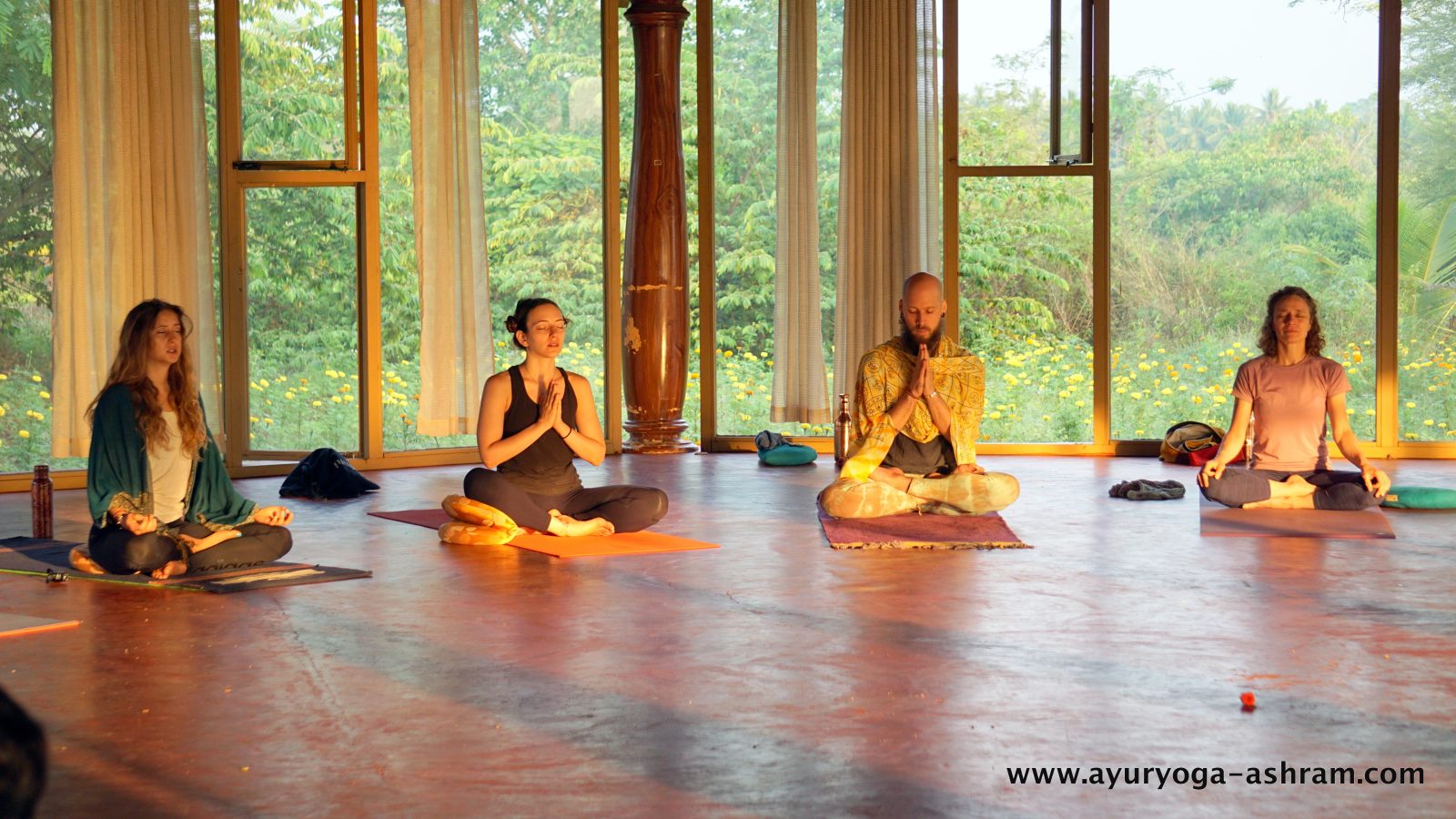BY ADITHI MATHEWS
According to the holy book, The Bhagavad Gita, Yoga is defined as ‘’the journey of the self, through the self, to the self.” Most Yogis who have been practicing Yoga will realise that the experience lies in the journey of Yoga, although there is the ultimate destination – Samadhi. This journey keeps evolving over time and our practice and our needs change to adapt our own growth through Yoga. This was one of the pointers founder and director of AyurYoga Eco-Ashram, Sri Krishna Chaitanya highlights in an enlightening chat.
After having scrolled through the Ashram’s website, I was drawn to the beautiful setting of the ashram and wanted to know what was ‘different’ about this ashram when compared to the other ashrams in India. For starters, the ashram is set in the pristine settings of 18 acres of lush green farmland making it the perfect setting for both the Yoga newbie and the Yoga expert to dive into some serious self-enquiry. ‘’ When we took this land, it was entirely barren and we converted this into a permaculture organic farm. We have done quite well as the entire area now looks green. We are increasing the number of trees planted and we’re trying to make it a forest. Our goal is to teach local farmers about organic farming and the importance of eating organic healthy food. We also got involved with offering the villagers free Ayurveda camps.’’ Says Krishna highlighting the core goal of AyurYoga Eco-Ashram, which is to give back to the local community.
Krishna’s journey
Having spent a substantial amount of time studying with many Yoga Gurus, in the most well-known Yoga Ashrams in India, Krishna has sought out questions that needed answers. As an 18-year-old, Krishna joined the Ramakrishna Mission as a Brahmachari with his goal set firmly on becoming a monk. After 6 years in the organisation, he left to attend the Bihar School of Yoga (Munger, Bihar), Swami Rama’s Ashram (Rishikesh) and spent some time in the Sivananda Ashram in Kerala, South India. He clarifies that his quest to become more spiritual took him to these places, which lead him to eventually realise one simple truth – accepting who he was. ‘’My practice is about ‘teach what you practice’, and this can be about just being a good human being. I bought this approach into my Yoga classes. I teach that as a person we have to accept and appreciate that fact that we don’t need to become somebody special or somebody spiritual by practicing Yoga, but we only have to do so by living a truly authentic life.’’ This basic component of accepting our human experience is a huge part of what they teach at the AyurYoga Eco-Ashram.
Attentive, Authentic Teacher Training
The beginning of AyurYoga Eco-Ashram was in the year 2010 in Dharamshala where Krishna first set out teaching Yoga solo without any affiliation to any other Yoga ashrams or gurus. Classes were offered via donation basis and Yogis could attend on a drop-in basis. The current 18-acre ashram campus came into fruition in 2013, this oasis of Yoga calm is situated just an hour’s drive away from Mysore and 4-5 hours away from Bangalore, in South India. The ashram offers basic and advanced Yoga teacher training as well as two week-long beginners and intensive Yoga retreats. They have a strict intake policy and don’t take in more than 24 students per teacher training batch. Students are comfortable split into batches so that teachers can give individual attention to their students. The style of Yoga taught at AyurYoga Eco-Ashram is traditional Hatha, with a closer resemblance to the Sivananda series. Krishna says, ‘’We teach traditional Hatha Yoga based on the principles of Hatha Yoga Pradipika. Our class is a reverse of the Sivananda style, but we are not limited to 12 asanas.’’ The Sivananda Yoga sequence consists of a set of 12 asanas, which follow a mostly set order of asana.
Click here to read more about Sivananda Yoga from our detailed blog on this style of Yoga.
In the last decade, the Indian subcontinent has witnessed a Yoga boom. Commercialisation of the practice brought along with it many pitfalls, one of which is preserving the true practice of Yoga, without selling out. During my conversation with Krishna, it becomes clear how meticulously he has worked to ensure that his ashram preserves the true Indian identity and essence of Yoga. He shares with me that his staff consists of all Indian teachers who ‘’teach what they practice.’’ The ashram currently supports about 30 Indian families of their staff.
Emphasis on Ayurveda.
Ayurveda, the sister science of Yoga is another important component at the AyurYoga Eco-Ashram. With an in-house Ayurvedic hospital and teachers from Kerala, where Ayurveda is most well-known, Krishna in conversation explains that both Yoga and Ayurveda need to exist simultaneously together. ‘’A yoga teacher wants to teach asana and they might not have a strong anatomical or medical background to decide what they should teach students. They teach what they like or what looks good. But by combining the knowledge of Ayurveda, all asanas are not necessarily good for everybody and should be practiced according to a body’s constitution, the weather of the place they are in and lifestyle. We are trying to combine the Yogic effects along with Ayurveda.’’
A place for serious practitioners
AyurYoga Eco-Ashram is situated far away from thriving India’s hustle and bustle. In the lap of nature, Krishna and his team have created a place for the serious Yoga practitioner. He shares with me that his strict intake policy takes in only those who have the time (2 – 4 weeks) to devote themselves to learning Yoga and Ayurveda. At the ashram, students and retreat participants are advised to detox digitally by keeping away from computers and phones to allow more space for inner enquiry. The ashram’s fixed daily schedule and healthy organic vegetarian diet allow participants to experience the Yoga lifestyle wholly.
Food is an essential part of the Yogic lifestyle and the AyurYoga Eco-Ashram sets the perfect example of completing the Yogic cycle. Their organic farm serves the needs of their students in their ashram perfectly while also balancing it out by giving back to the community. In turn, they set the perfect example of practising the preachings of Yoga.
For more details about the ashram, do visit the ashram’s page on our website here.





